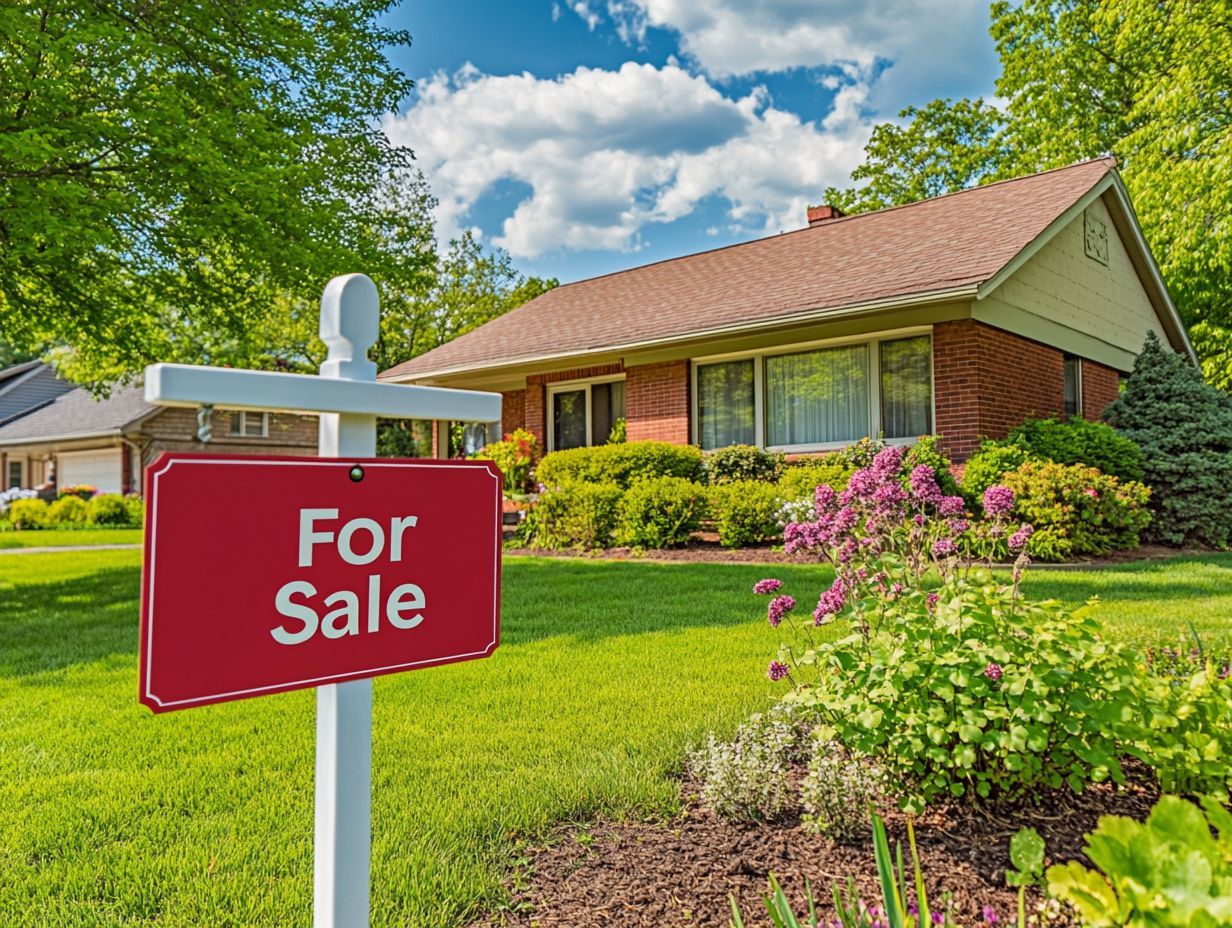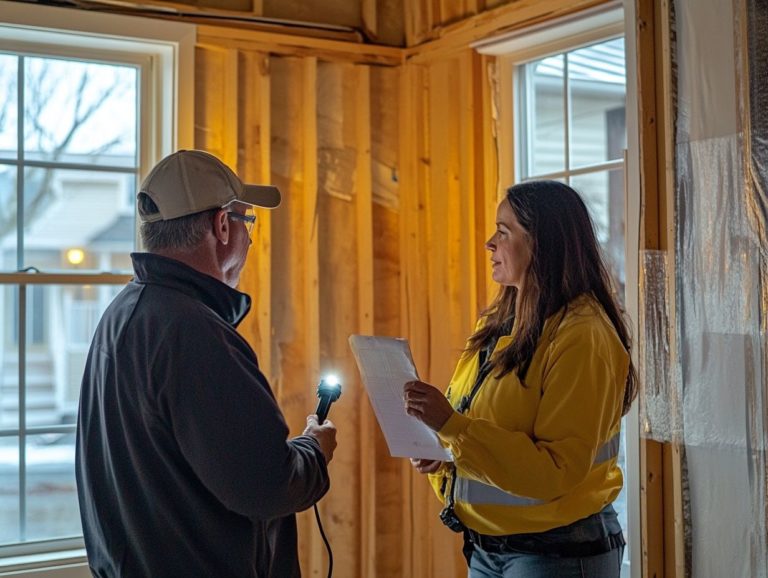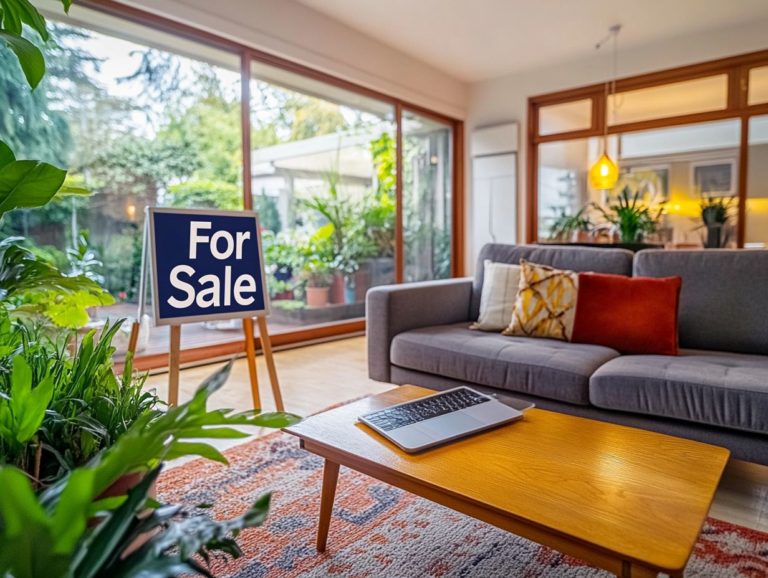Pricing Your Home Competitively
Pricing your home correctly is key to attracting buyers and selling quickly. Whether you aim to attract potential buyers or secure a swift sale, grasping the effects of overpricing or underpricing is vital it can truly make all the difference.
This article delves into the key factors that influence home pricing, such as market conditions, location, and amenities. It will guide you in determining the right price, employing strategies to stay competitive, and making adjustments as needed.
Get ready to discover the secrets of pricing your home effectively!
Contents
- Key Takeaways:
- Why Pricing Your Home Correctly is Important
- Factors to Consider when Pricing Your Home
- Determining the Right Price for Your Home
- Strategies for Pricing Your Home Competitively
- Offering Incentives
- Re-evaluating Your Price if Your Home Doesn’t Sell
- Frequently Asked Questions
- What does it mean to set a competitive price for my home?
- Why is it important to price my home competitively?
- How do I determine a competitive price for my home?
- Should I price my home higher to leave room for negotiation?
- What are the risks of pricing my home too high?
- Can I adjust the price if my home doesn’t sell?
Key Takeaways:
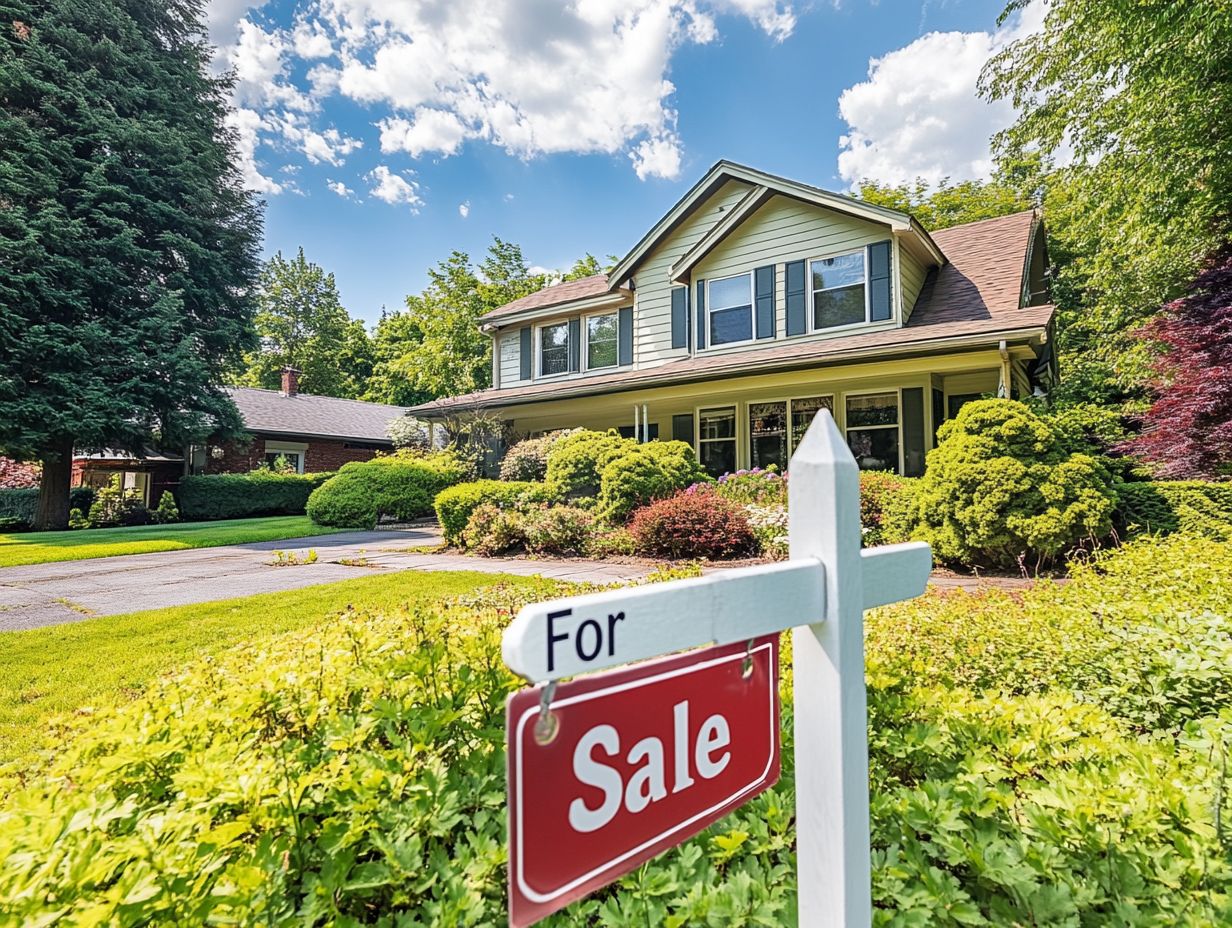
Pricing your home correctly is crucial for attracting potential buyers and selling your home quickly. Factors such as market conditions, location, and comparable properties should be carefully considered when determining the right price for your home. Strategies such as pricing slightly below market value and offering incentives can help make your home more competitive and increase its chances of selling.
Why Pricing Your Home Correctly is Important
Pricing your home correctly is essential in today s competitive real estate market, as it directly impacts both the speed of your sale and the final selling price.
A well-priced home is like a magnet for potential buyers, creating a sense of urgency that can lead to quicker offers and even bidding wars.
On the flip side, misjudging your home s value can mean extended market exposure and lower offers, putting your sale at risk.
To establish the right listing price, you should familiarize yourself with home appraisal methods, collaborate with a savvy real estate agent, and consider current market conditions along with your property s unique characteristics. Staying informed about the latest real estate trends will enable you to navigate pricing strategies with confidence.
The Impact of Overpricing or Underpricing
Overpricing or underpricing your home can have serious repercussions on its marketability and final sale price, often leading to lost opportunities and extended listings.
Setting a price too high can scare away buyers, prompting them to choose better-valued alternatives instead. For instance, if you set your asking price significantly above recent appraisals or comparable properties in your area, you risk scaring off interest, which could leave your home languishing on the market for far too long.
On the flip side, underpricing can spark a false sense of urgency, attracting multiple offers but it also runs the risk of selling below market value, leaving you feeling short-changed.
An experienced realtor underscores the importance of establishing a price based on a thorough analysis of local market trends and property features to achieve the perfect balance.
Factors to Consider when Pricing Your Home
When you price your home, many important factors need your attention. Current market conditions, comparable properties nearby, and the unique characteristics of your property all play an important role in how buyers see its value.
Each element intertwines to create a comprehensive picture, influencing how potential buyers will perceive your home.
Market Conditions and Comparable Properties
Understanding market conditions and analyzing comparable properties are crucial steps in pinpointing the right price for your home. This analysis offers valuable insights into current real estate trends and what buyers expect.
To effectively assess these market conditions, take the time to review recent sales data and current listings in your neighborhood. Evaluating the performance of similar properties can illuminate pricing strategies that resonate with prospective buyers.
Real estate agents are instrumental in conducting a comparative market analysis (CMA), a method used to assess the value of your home compared to similar properties. By leveraging their expertise, they can accurately determine your property s value by comparing it to similar homes in the area, ensuring that your pricing decision is well-informed and aligned with market dynamics.
Location and Amenities
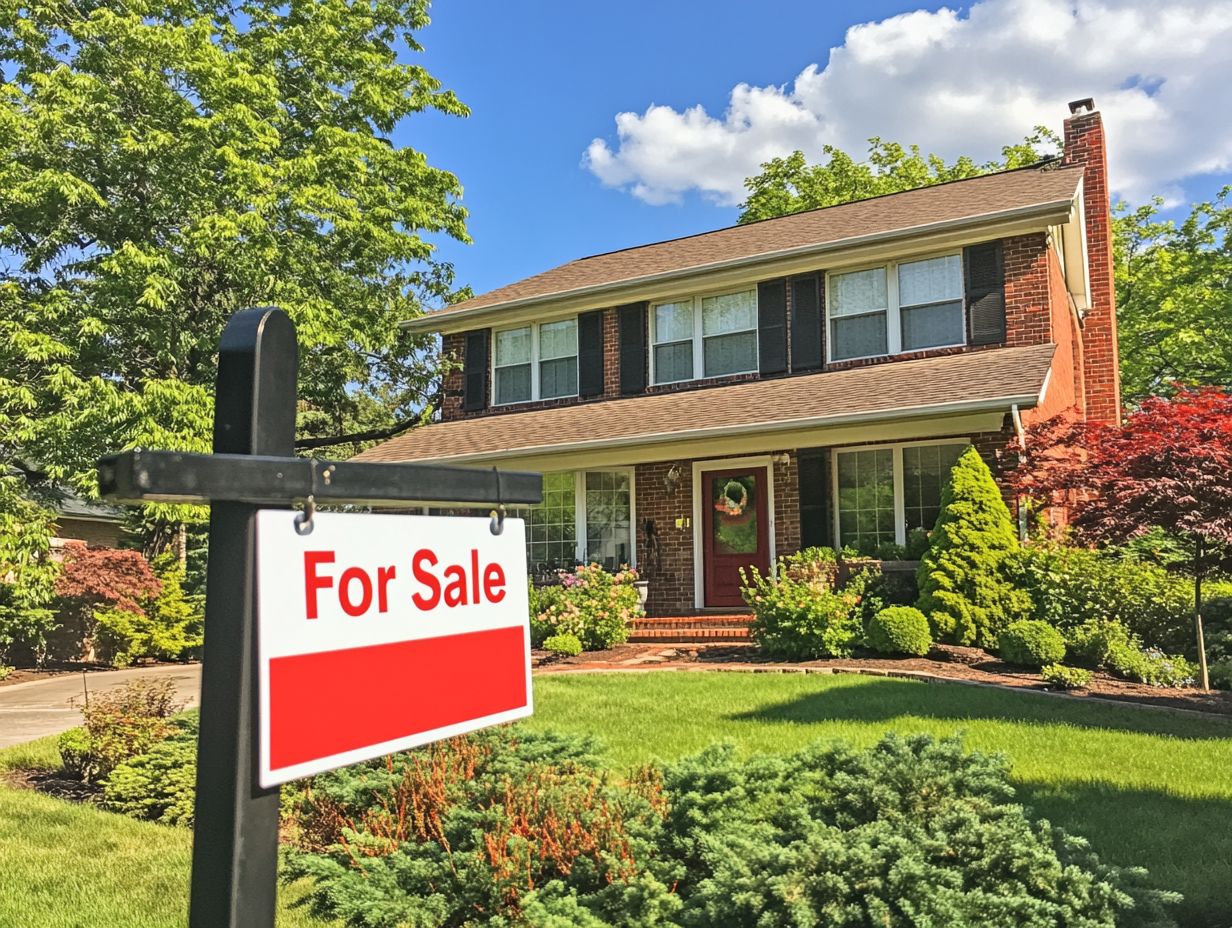
The location of your home plays a pivotal role in determining its marketability and overall value. Amenities are equally essential in the pricing process.
Schools boost home value. Proximity to reputable schools increases demand and attracts families, as parents prioritize education. This can lead to increased demand and ultimately higher property values.
Being near parks provides recreational space. This fosters a sense of community and outdoor activity that many buyers hold dear.
Shopping centers within walking distance add convenience. This allows easy access to groceries and restaurants an especially appealing feature for busy professionals.
Features like modern kitchens, well-maintained landscaping, and access to public transport enhance the home’s appeal. These factors justify premium pricing in today s competitive real estate market, ensuring that you are making a wise investment.
Determining the Right Price for Your Home
To determine the optimal price for your home, conducting a thorough comparative market analysis (CMA) is crucial. A CMA is a tool that evaluates similar properties in your area to determine a competitive price.
This process enables you to assess similar properties in the market. With the guidance of a qualified real estate agent, you can gain invaluable insights to make an informed decision.
Using Comparative Market Analysis
Utilizing a comparative market analysis (CMA) helps you grasp your property’s value in relation to similar homes sold nearby. This offers a clear framework for establishing a competitive listing price.
By examining metrics like square footage, number of bedrooms, and unique features, you uncover valuable insights about how your home compares to others. Analyzing recent sale prices allows you to spot market trends, while considering the average days on the market provides a glimpse into how swiftly homes are selling in your area.
This thorough approach is crucial for attracting potential buyers. It boosts their confidence in your listing price and showcases your home s competitive edge within the local market.
Working with a Real Estate Agent
Collaborating with a knowledgeable real estate agent offers invaluable insights into effective pricing strategies. This ensures your home is positioned competitively in the market to maximize your potential sale profits.
These professionals possess a deep understanding of local market dynamics and trends. They analyze recent sales data, helping you pinpoint the best time to sell while providing crucial assistance in grasping property value fluctuations.
With their keen insights into buyer behaviors, real estate agents prepare you for negotiations. This makes the selling process smoother and more efficient.
Ultimately, their guidance helps you achieve optimal pricing and equips you with the knowledge to make informed decisions throughout the transaction.
Strategies for Pricing Your Home Competitively
Implementing effective pricing strategies is essential for attracting home buyers and facilitating a swift sale. You may find it necessary to adopt a flexible pricing approach that adapts to ever-changing market conditions.
This adaptability positions your property competitively and enhances your chances of securing the right buyer promptly.
Pricing Slightly Below Market Value
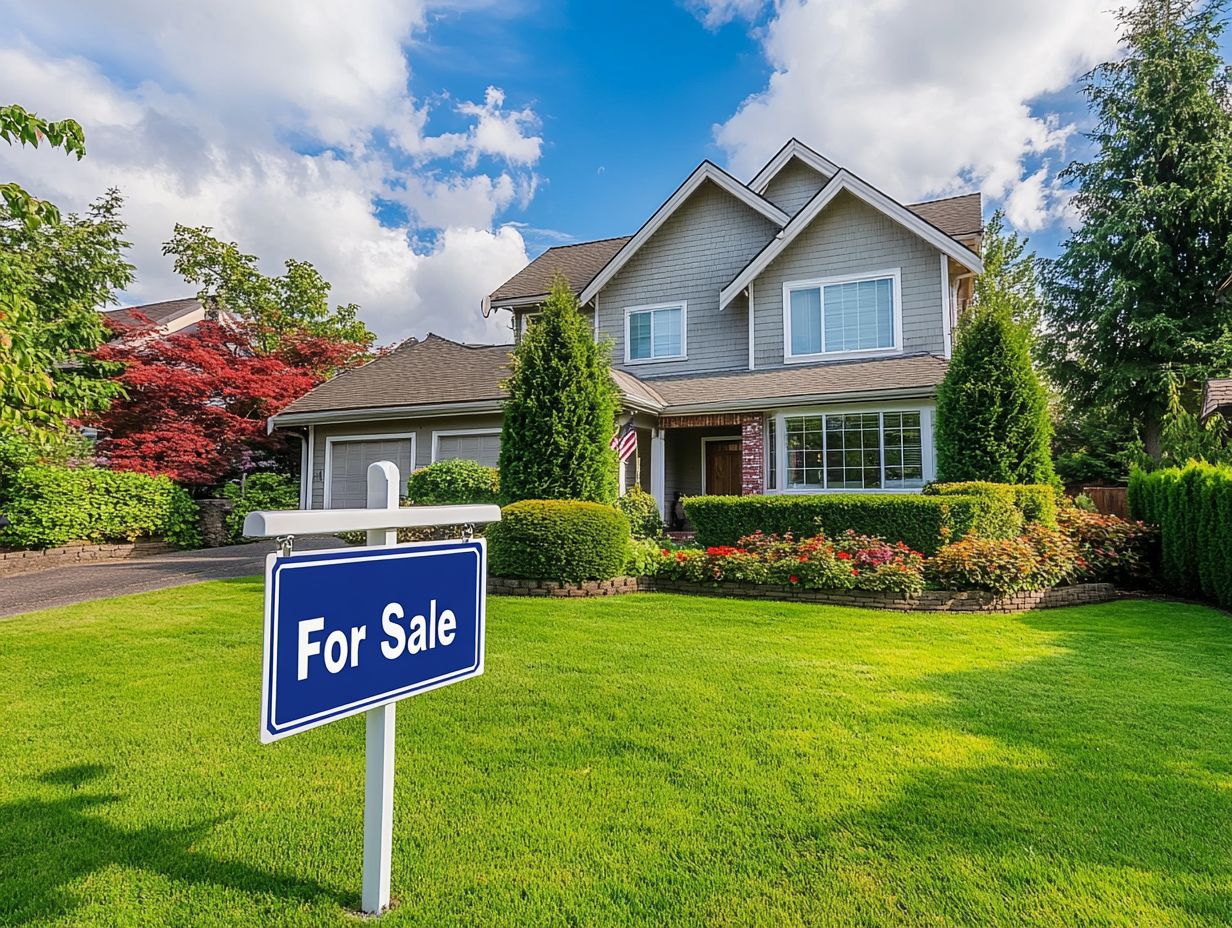
Pricing your home just below market value gives you a distinct advantage. It attracts eager buyers ready to discover what your property has to offer and could ignite bidding wars.
This pricing strategy creates urgency among buyers, encouraging them to act quickly before someone else snatches up a desirable gem.
For instance, a recent case study in a bustling suburban neighborhood showed how a home listed at 5% below market value generated multiple offers in just a week. Buyers recognized the opportunity as a rare find, leading to heightened competition and ultimately pushing the sale price above the original market value.
In another scenario, sellers who embraced this tactic saw their homes flying off the market in mere days. This captured the attention of both first-time homeowners and seasoned investors, all eager to secure a deal before these properties slipped through their fingers.
Offering Incentives
Offering incentives, like covering closing costs or providing a home inspection, can greatly boost your home’s appeal to buyers, making your listing stand out in a crowded market.
When buyers hear about these benefits, their interest often spikes, creating a favorable atmosphere for negotiations. You have several options available, such as home warranties or flexible move-in dates, all designed to ease any buyer concerns.
By customizing these incentives to meet specific buyer needs, you create a competitive edge that attracts attention and fosters genuine connections.
A savvy real estate agent can guide you through these choices, ensuring they re structured to maximize appeal while aligning with your goals. This approach facilitates smoother transactions, benefiting everyone involved.
Re-evaluating Your Price if Your Home Doesn’t Sell
If your home hasn t sold in time, it s time to look at your price again. Changes in the market and buyer feedback can greatly impact how buyers perceive your home s value.
Adjusting for Market Changes
Adjust your price to stay competitive in the ever-evolving real estate landscape. As pricing strategies shift, being proactive becomes your best ally.
To effectively analyze market trends, consider factors like local inventory levels, buyer demand, and recent sales data. For instance, if similar properties in your neighborhood sold for significantly lower prices after a price cut, it might signal a shift in buyer preferences or increased competition.
By leveraging local market analysis, you can make informed decisions about adjusting your listing price to attract buyers and facilitate quicker sales. Take, for example, a family whose home sat on the market for months until they reduced their asking price by 10%. After this strategic adjustment, interest surged, and they sold their home within weeks.
Considering Feedback from Potential Buyers
Feedback from potential buyers gives you valuable insights into necessary price adjustments and property features that may need enhancement to increase marketability.
By engaging in conversations during showings or open houses, you can gather essential impressions and reactions. Encourage visitors to share their thoughts through casual discussions or structured feedback forms.
Analyzing this feedback helps you pinpoint common concerns, such as outdated features or pricing perceptions that might influence interest levels. With this information, you can suggest meaningful improvements or strategic price adjustments, ensuring the property remains competitive and appealing to your target market.
Frequently Asked Questions
Pricing Your Home Competitively
What does it mean to set a competitive price for my home?
Setting a competitive price means choosing a price that attracts potential buyers in the current market. It involves researching similar homes in your area to determine the best price point for your home.
Why is it important to price my home competitively?
Pricing your home competitively is important because it attracts more potential buyers and increases the likelihood of receiving offers quickly. It also helps avoid your home sitting on the market for too long, which can lower the selling price.
How do I determine a competitive price for my home?
To determine a competitive price, work with a real estate agent who has access to market data and can provide insights. Research similar homes in your area that have recently sold and consider any unique features or upgrades your home may have.
Should I price my home higher to leave room for negotiation?
While it may seem strategic to price your home higher for negotiation, it can actually deter potential buyers. In today’s market, buyers are informed and may be turned off by a significantly overpriced home. It’s best to price your home competitively from the start.
What are the risks of pricing my home too high?
If you price your home too high, your property might linger on the market longer than expected.
This can lead to lower interest and ultimately, a reduced selling price.
Potential buyers may think your home is overpriced and not even consider making an offer.
Can I adjust the price if my home doesn’t sell?
Yes, you can change the price if your home doesn’t sell.
It’s important to act quickly; if your home remains unsold after several weeks, the price may be the issue.
Talk to your real estate agent to decide on the best steps to take.

